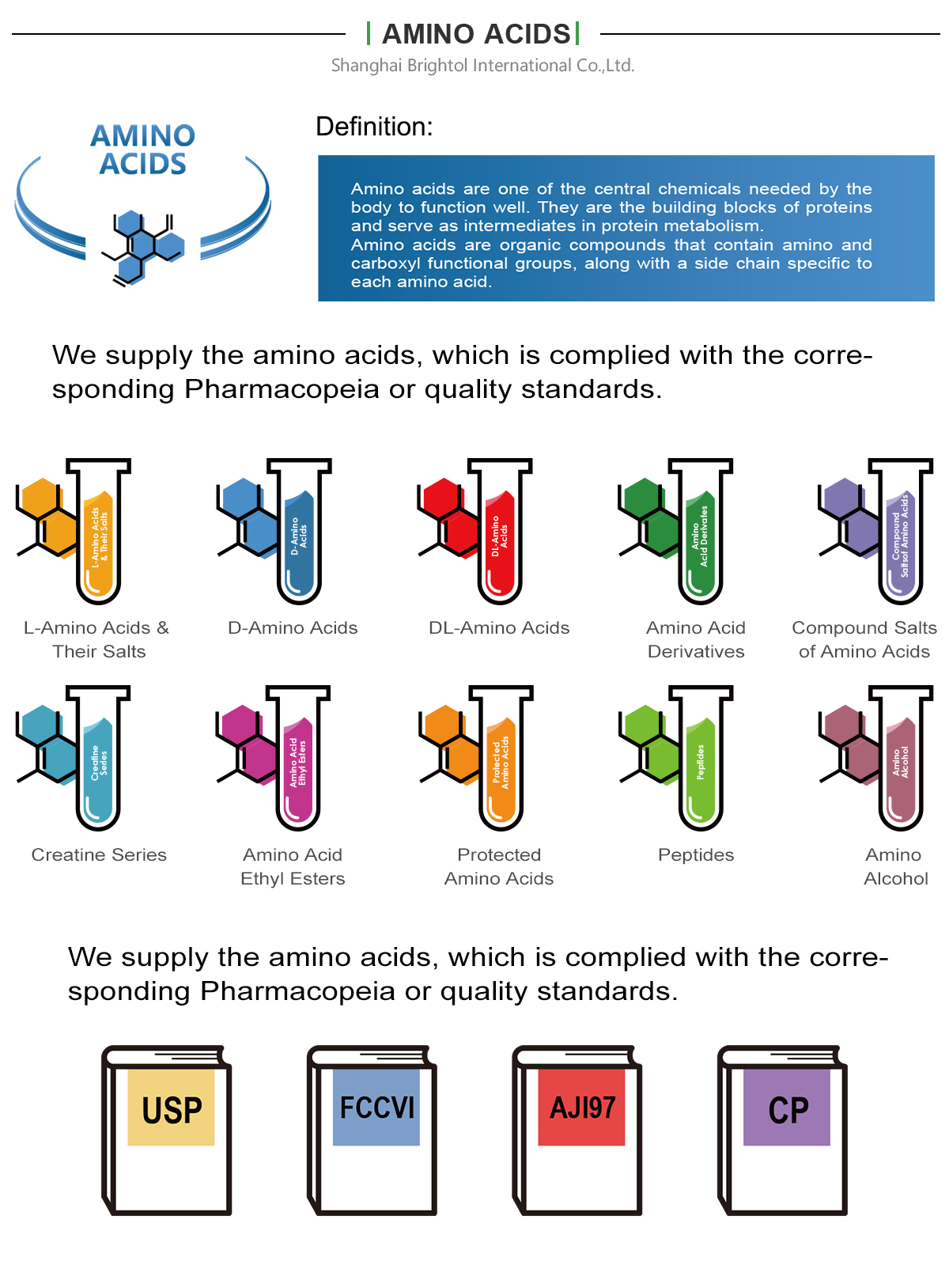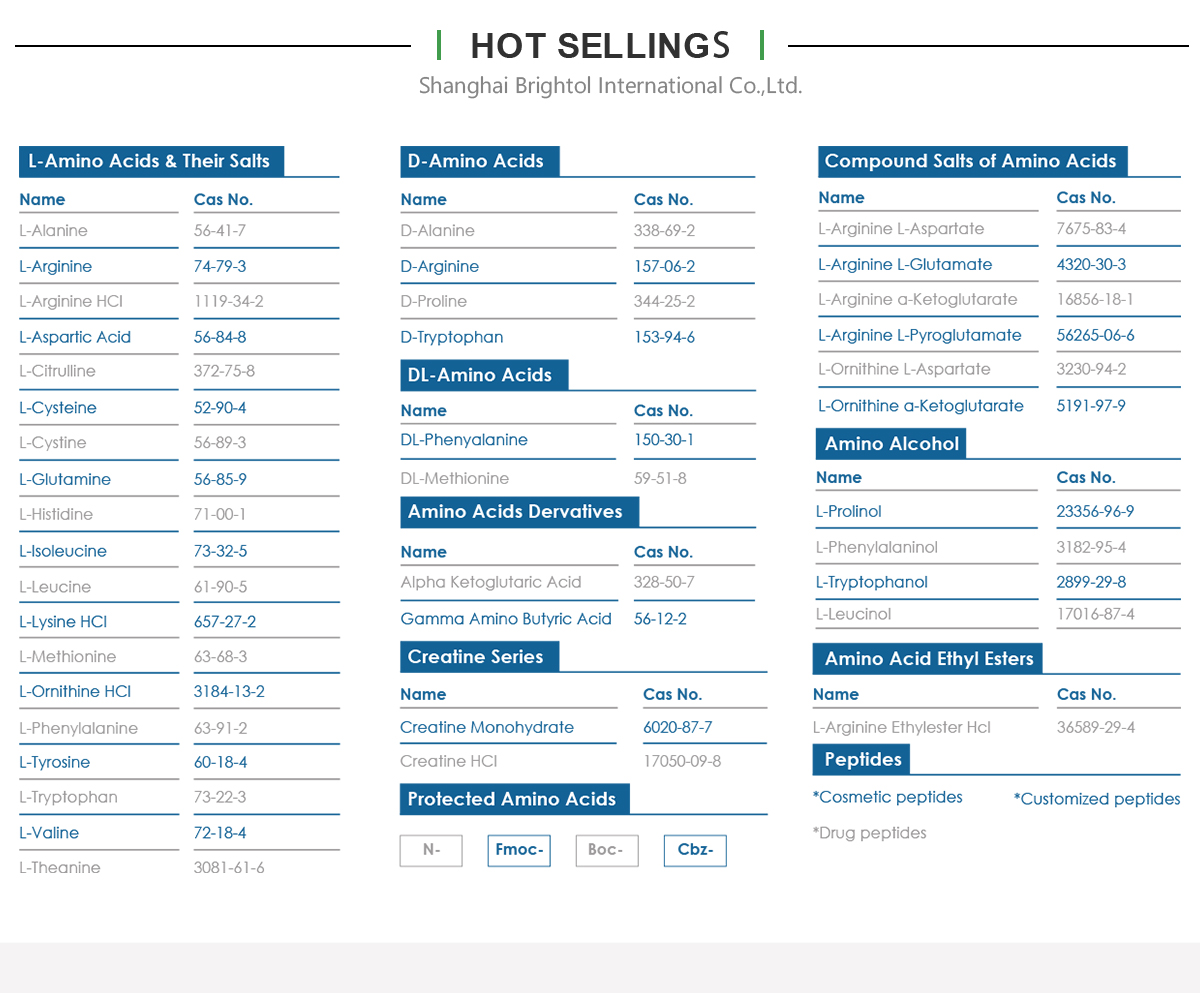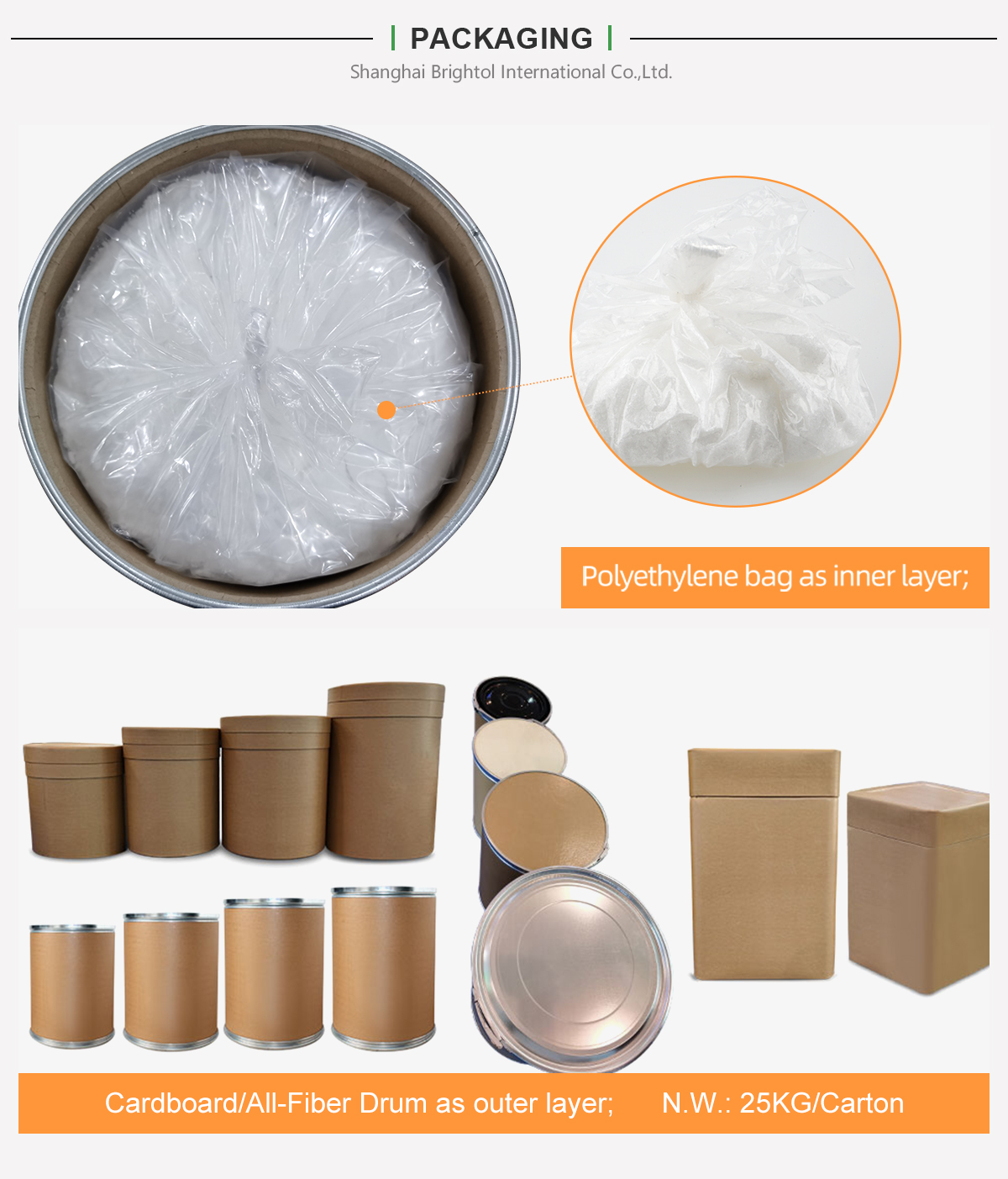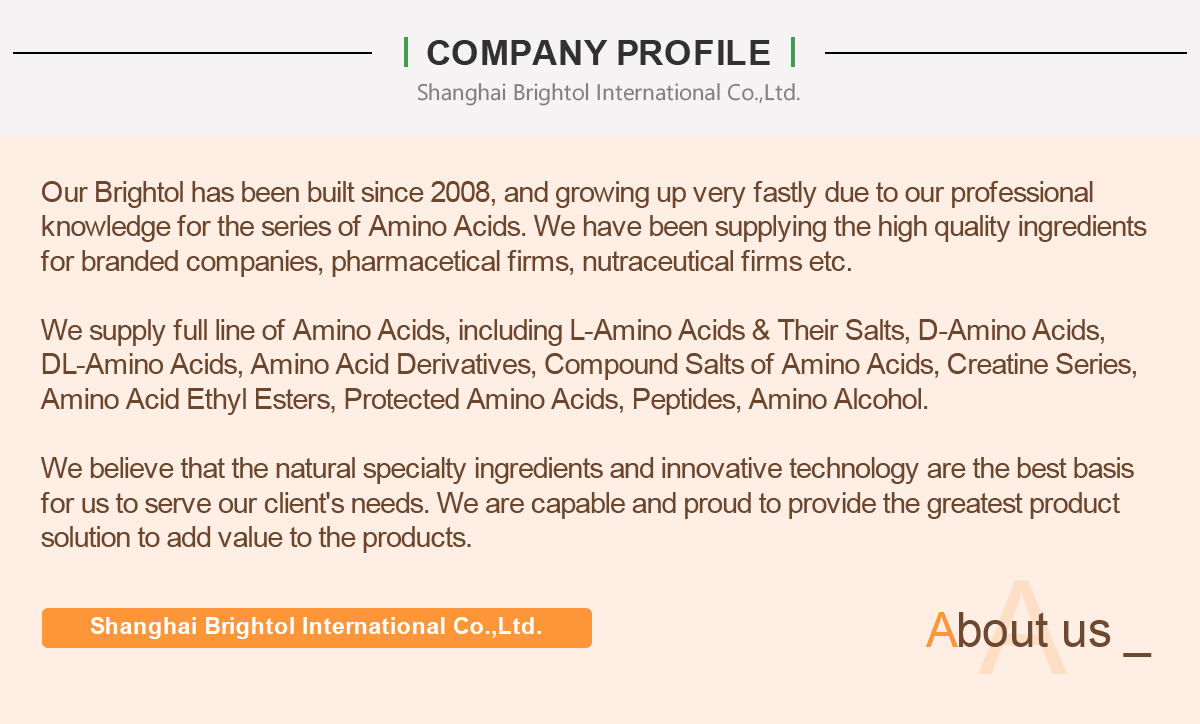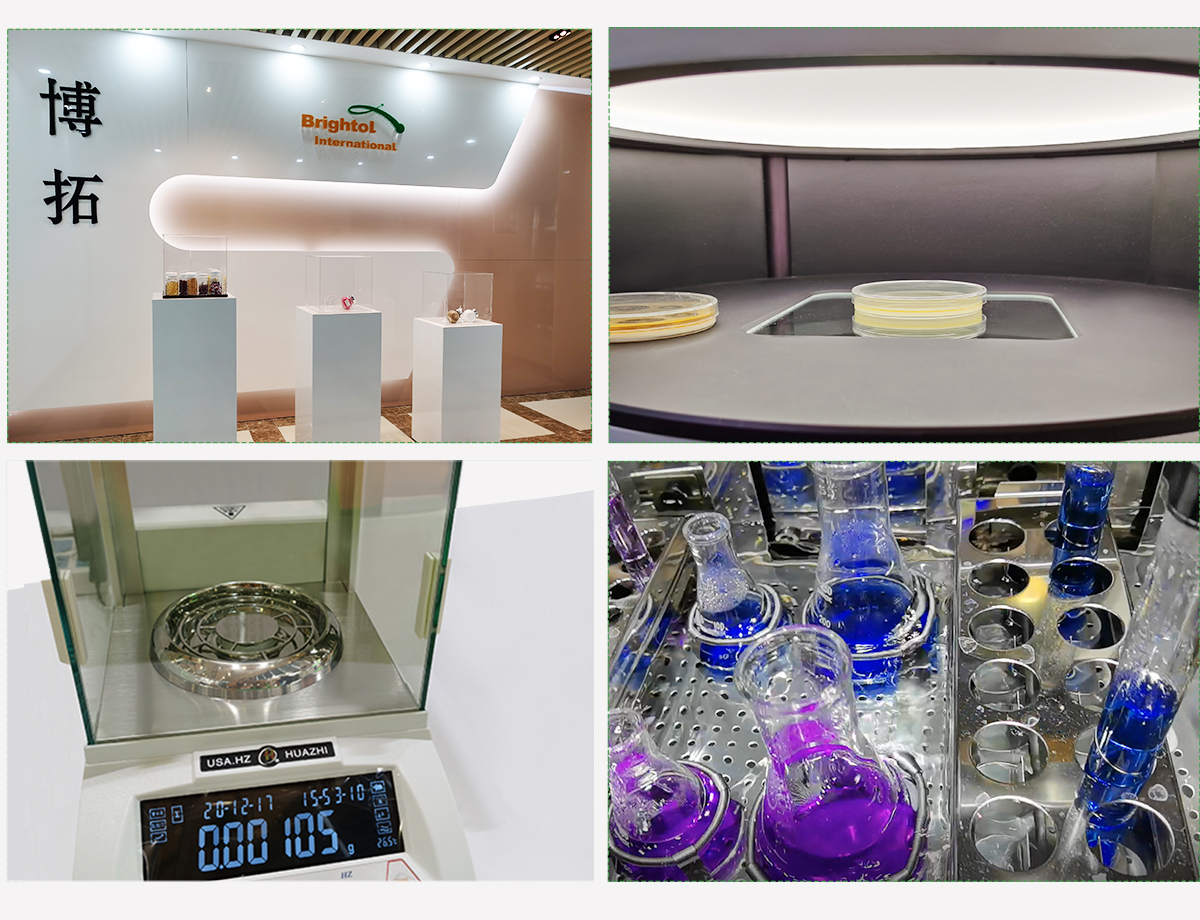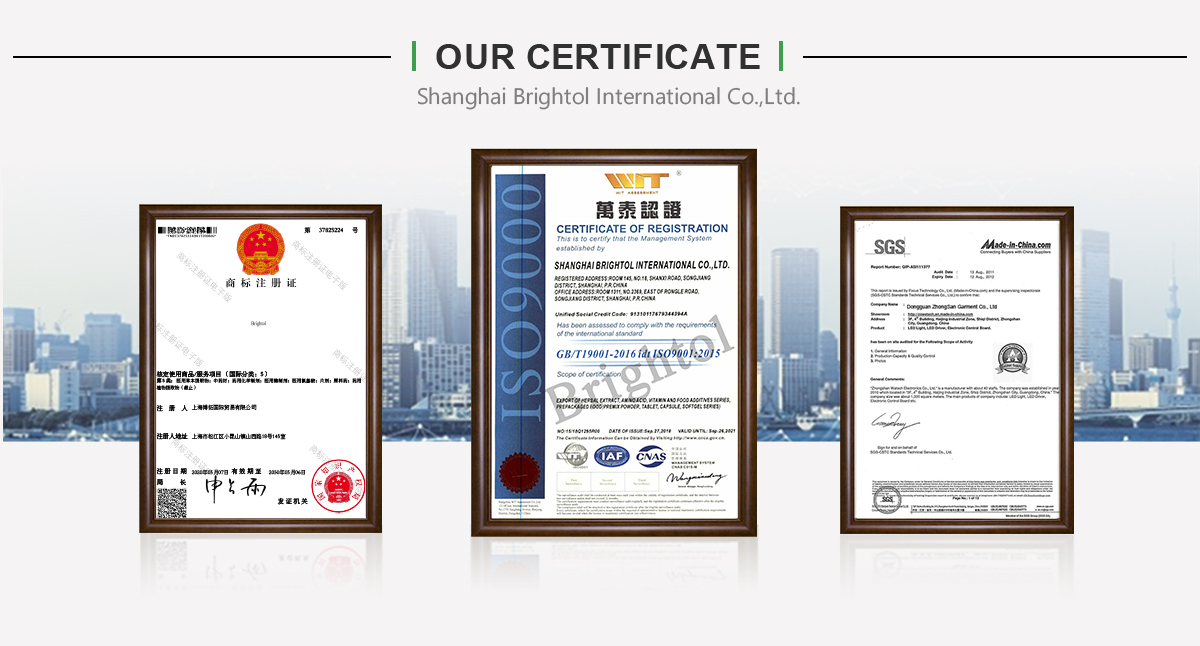

Product Name: L-(+)-Arginine hydrochloride
Synonyms: L-Arginine hydrochloride; L-Arginine monohydrochloride; 2-Amino-5-guanidinovaleric acid monohydrochloride
Molecular Formula: C6H14N4O2.HCl
Molecular Weight: 210.66
CAS No.: 1119-34-2
EINECS: 214-275-1
Description
Arginine is a non-essential amino acid that is important to may different bodily processes. Arginine HCL is a synthetically manufactured form of arginine that combines the amino acid with a hydrogen chloride molecule, and can be found in either powder or capsule form. It is used by athletes to increase oxygen delivery and blood flow during exercise, notes the book "Nutritional Supplements in Sports and Exercise." Hydrogen chloride is combined with arginine to make the supplement more palatable and to enhance its absorption by the digestive system.
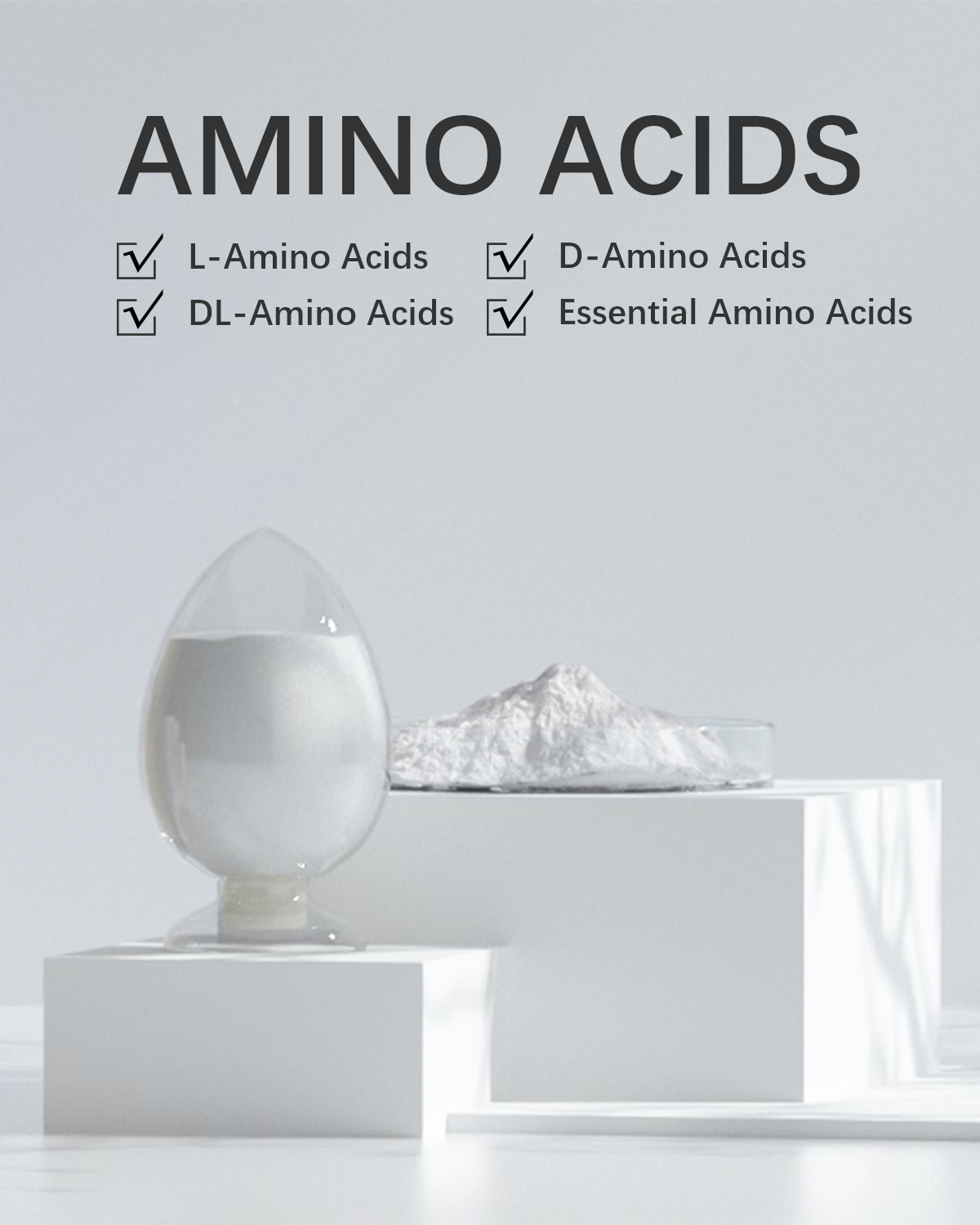

Product Name: L-(+)-Arginine hydrochloride
Synonyms: L-Arginine hydrochloride; L-Arginine monohydrochloride; 2-Amino-5-guanidinovaleric acid monohydrochloride
Molecular Formula: C6H14N4O2.HCl
Molecular Weight: 210.66
CAS No.: 1119-34-2
EINECS: 214-275-1
Description
Arginine is a non-essential amino acid that is important to may different bodily processes. Arginine HCL is a synthetically manufactured form of arginine that combines the amino acid with a hydrogen chloride molecule, and can be found in either powder or capsule form. It is used by athletes to increase oxygen delivery and blood flow during exercise, notes the book "Nutritional Supplements in Sports and Exercise." Hydrogen chloride is combined with arginine to make the supplement more palatable and to enhance its absorption by the digestive system.
Arginine HCL and Athletic Performance
One of the main effects of arginine is that it causes vasodilation, or an increase in the diameter of blood vessels. Arginine accomplishes this by stimulating the smooth muscle endothelial cells that line the blood vessels to produce a compound called nitric oxide. Nitric oxide stimulates blood vessels to relax and expand, increasing the flow of blood and oxygen to the muscles during bouts of intense exercise, especially resistance training. An increase in blood flow and oxygen delivery during exercise may enhance performance, allowing muscles to produce more strength and delaying the onset of exercise-induced fatigue.
Arginine HCL and Hormone Production
Arginine is an important catalyst for the production of human growth hormone, or HGH. When ingested, arginine HCL stimulates the anterior pituitary gland to release HGH, increasing plasma levels of HGH circulating throughout the body. Naturally elevated levels of HGH have many benefits, including an increase in muscle recovery and repair, regulation of metabolism, body fat reduction, and the optimal functioning of the heart and kidneys, according to "Nutritional Supplements in Sports and Exercise." Taking arginine in conjunction with other amino acids, specifically lysine and ornithine.
